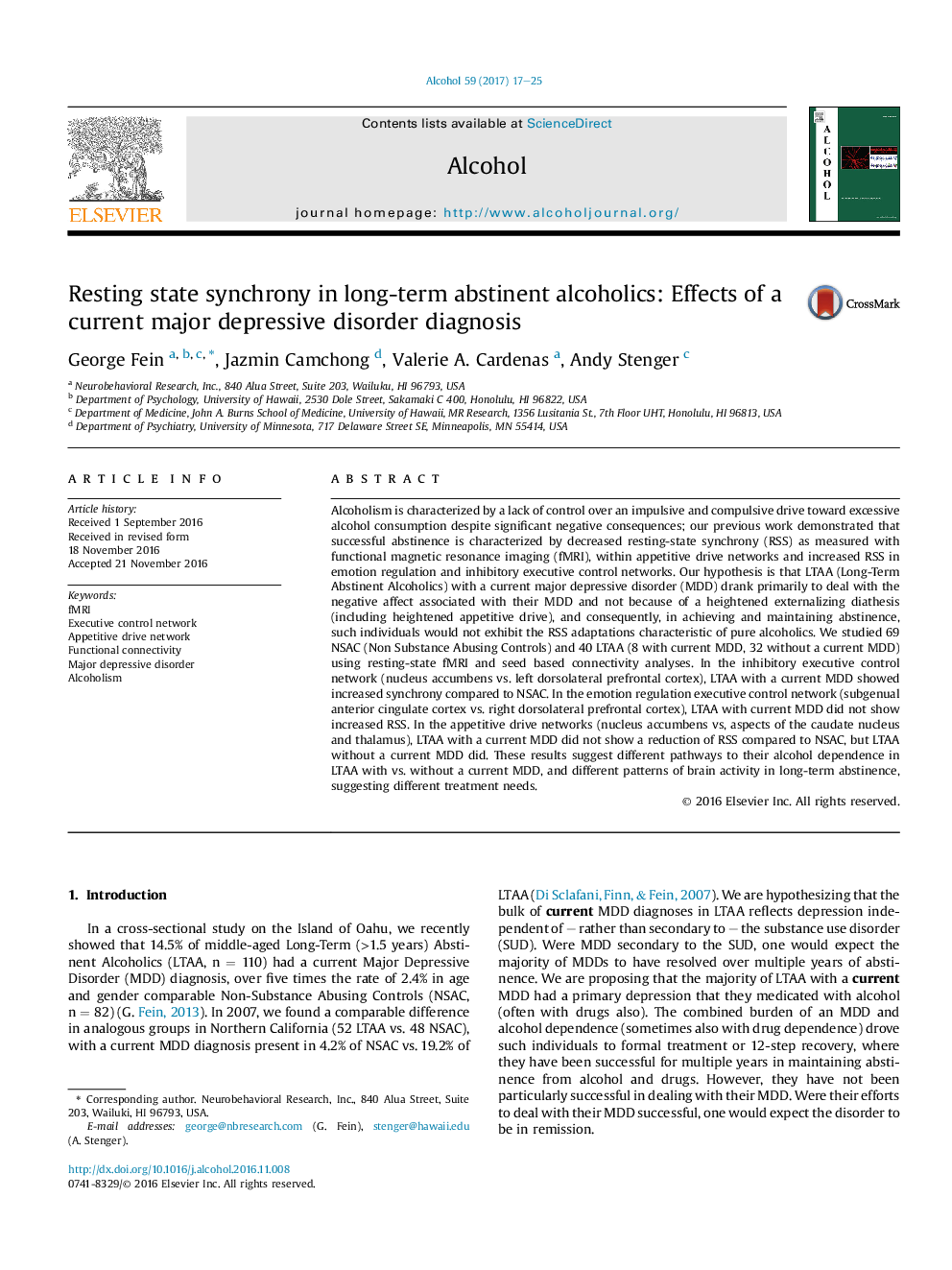| Article ID | Journal | Published Year | Pages | File Type |
|---|---|---|---|---|
| 5119716 | Alcohol | 2017 | 9 Pages |
â¢Current major depression affects fMRI network synchrony in alcoholics.â¢Alcoholics with current MDD do not show characteristic network adaptations.â¢Appetitive networks do not drive the addiction in alcoholics with current MDD.â¢Different brain activity pattern and treatment needs in alcoholics with current MDD.
Alcoholism is characterized by a lack of control over an impulsive and compulsive drive toward excessive alcohol consumption despite significant negative consequences; our previous work demonstrated that successful abstinence is characterized by decreased resting-state synchrony (RSS) as measured with functional magnetic resonance imaging (fMRI), within appetitive drive networks and increased RSS in emotion regulation and inhibitory executive control networks. Our hypothesis is that LTAA (Long-Term Abstinent Alcoholics) with a current major depressive disorder (MDD) drank primarily to deal with the negative affect associated with their MDD and not because of a heightened externalizing diathesis (including heightened appetitive drive), and consequently, in achieving and maintaining abstinence, such individuals would not exhibit the RSS adaptations characteristic of pure alcoholics. We studied 69 NSAC (Non Substance Abusing Controls) and 40 LTAA (8 with current MDD, 32 without a current MDD) using resting-state fMRI and seed based connectivity analyses. In the inhibitory executive control network (nucleus accumbens vs. left dorsolateral prefrontal cortex), LTAA with a current MDD showed increased synchrony compared to NSAC. In the emotion regulation executive control network (subgenual anterior cingulate cortex vs. right dorsolateral prefrontal cortex), LTAA with current MDD did not show increased RSS. In the appetitive drive networks (nucleus accumbens vs, aspects of the caudate nucleus and thalamus), LTAA with a current MDD did not show a reduction of RSS compared to NSAC, but LTAA without a current MDD did. These results suggest different pathways to their alcohol dependence in LTAA with vs. without a current MDD, and different patterns of brain activity in long-term abstinence, suggesting different treatment needs.
